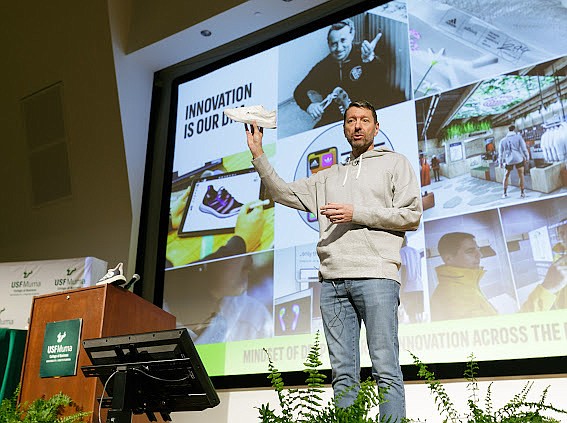- December 15, 2025
-
-
Loading

Loading

Adidas CEO Kasper Rorsted was the most recent guest of honor in the Thought Leader Series at the University of South Florida Muma College of Business. Normally based at the shoe and clothing giant’s headquarters in Germany, Rorsted, a Danish national, chose Tampa for his first U.S. trip since the start of the pandemic.